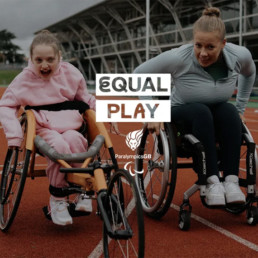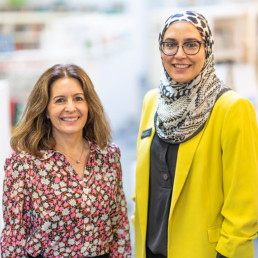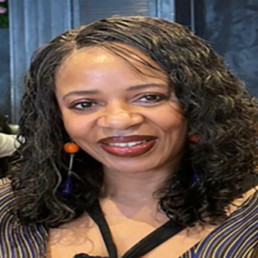Empowering pupils to challenge gender stereotypes: A Premier League Primary Stars initiative

Written by PLPS
Premier League Primary Stars helps children to learn through the power of football in more than 19,000 primary schools across England and Wales. Free Premier League Primary Stars resources can be downloaded from www.plprimarystars.com
Gender stereotypes remain a persistent barrier to achieving equity in education and society. They influence how young people perceive themselves and others, shaping aspirations, limiting opportunities, and perpetuating inequality. This is why initiatives that actively address these biases are vital. One such initiative is the new resource from Premier League Primary Stars, designed to help teachers tackle gender stereotyping in schools while fostering diversity, equity, and inclusion.
The importance of challenging gender stereotypes
Gender stereotypes are deeply rooted assumptions about what boys and girls can or should do, often perpetuated by cultural norms, media, and historical biases. For instance, boys might be discouraged from pursuing artistic hobbies, while girls may face discouragement in sports or STEM subjects. Left unchecked, these stereotypes not only limit individual potential but also contribute to systemic inequality, reinforcing societal structures that marginalise certain groups.
By addressing these biases early, teachers can empower pupils to critically evaluate and challenge such assumptions. Doing so creates a foundation for more inclusive attitudes, enabling children to celebrate diversity and develop empathy.
A free resource that makes a difference
Premier League Primary Stars’ new gender stereotyping lesson is a comprehensive, teacher-friendly tool that equips teachers to lead impactful discussions and activities. Designed for Key Stage 2 pupils in England and Progression Steps 2 and 3 in Wales, the resource is both practical and inspiring.
Key features of the resource
- Empowering activities:
The lesson introduces pupils to the concept of gender stereotypes and helps them identify biases they may encounter in school or the wider world. Through engaging activities and thought-provoking discussions, pupils gain the confidence to challenge these stereotypes constructively. - Inspiring role models:
Representation matters. The lesson highlights stories of individuals – both male and female – who have defied traditional gender roles, encouraging pupils to think critically and celebrate diversity. From female athletes excelling in male-dominated sports to male caregivers embracing nurturing roles, these examples inspire young minds to imagine a world free of limitations. - Youth voice film:
The inclusion of a dynamic film amplifies the voices of young people, providing relatable insights and practical advice on fostering inclusion. This multimedia approach helps make the resource accessible and engaging, sparking meaningful conversations in the classroom. - Expertly crafted for teachers:
Developed in collaboration with subject matter experts and practising teachers, the resource is user-friendly and aligned with the curriculum. This ensures that teachers are well-supported in delivering sensitive and impactful lessons.
Real-world impact in schools
Feedback from teachers who have used the resource has been overwhelmingly positive. One PSHE primary teacher in Wales noted:
“This is a very user-friendly and engaging lesson that effectively targets the idea of stereotyping in school and out of school.”
The practical design of the lesson not only saves teachers time but also builds their confidence in addressing a complex topic. For pupils, the benefits are profound. They develop critical thinking skills, inclusive attitudes, and the ability to challenge harmful stereotypes – skills that will serve them well throughout their lives.
A call to action for teachers
Teachers have a unique opportunity to shape the next generation’s understanding of equity and inclusion. Tackling gender stereotypes in the classroom is a crucial step toward this goal. The Premier League Primary Stars resource provides a roadmap for doing just that, empowering both teachers and pupils to contribute to a more inclusive society.
Premier League encourages teachers across the UK to explore this free resource and integrate it into their PSHE or Health and Well-being lessons. By fostering open discussions and providing pupils with tools to challenge stereotypes, we can help dismantle barriers and create a world where all children can thrive – regardless of their gender.
For more information and to access the resource, visit Premier League Primary Stars.
Together, let’s champion diversity, equity, and inclusion in every classroom.
Our identities: A fixed entity?

Written by Becky Shewell
My name is Becky Shewell and I am a Qualified Teacher of the Deaf, graduating with an MSc in Deaf Education with Distinction from The University of Manchester in 2023. I am the creator and founder of The Shewell IntersectionaliTREE, a database of books with positive and incidental role model representation, so children can see themselves to be themselves.
Often, when people think about their identity, the ‘big’ categories spring to mind. Their gender, sexuality, ethnicity, belief systems and so on. Of course, these form our identities, but during my time running workshops and talks as creator/founder of The Shewell IntersectionaliTREE, I’ve concluded that identities are much more nuanced than this. I usually start my workshops asking people to name five words they identify with and what surprised me is that often, people name traits related to their day-to-day lives. Words like dog-lover, vegan, mother, educator, singer and so on. I found this fascinating, as I didn’t expect this, thinking they would choose words that fall into much broader categories.
As for me, I identify as a queer, disabled woman but I do not necessarily identify by those things first. I am also a cyclist, sister, partner, creator and educator. The second set of traits are those which I embody on a day-to-day basis, that I really relate to. They are linked to the fact that I’m a queer, disabled woman because those overarching identities play into the life that I have shaped, and that has been shaped for me by external factors. I am a cyclist, because this is a low impact sport that I can participate in, as I have a form of hip dysplasia that stops me from being, say, a runner. I am a sister, which is a large part of my identity as a woman. A creator, because I have experienced challenges as a queer woman and an educator, because of the privileges of growing up in a loving environment and wanting to give that back. This is what speaks to me when I think about intersectionality and when I develop content to support our intersectional young people, through The Shewell IntersectionaliTREE, a library database of books with diverse, intersectional characters that our young people can relate to.
Our identity is not made up of single, fixed categories, but how these play out to create deeper, more meaningful traits that we really share when we want somebody to know about us and what makes us tick. It is a result of how all these intersecting identities shape us over time, as well as the social factors that have granted us privilege and power or discrimination and marginalisation.
Bronfenbrenner’s Ecological Systems Theory (1977) (Bronfenbrenner’s Ecological Systems Theory) even goes as far to draw into question how much our belief systems are really a choice, and not just shaped by our experiences, such as the family, place and opportunities we are born into. Indeed, our environment has a high impact on us; shaping our world view, choices and how we interact with each other. This was a focus on the PDGipEd/MSc Deaf Education course at The University of Manchester, where we considered differing parental views, to ensure the best care possible.
So, when we think about identity, are we thinking about it in a nuanced enough way? I think now, we are doing a good job of presenting a diverse range of characters on media platforms with d/Deaf and disabled characters on soap shows like Waterloo Road and Eastenders, queer shows like Heartstopper readily available on Netflix and a wide range of storybooks with intersectional representation in the mainstream bookstores. Yet, in a recent Masters project I carried out, participants found that the portrayal of these characteristics, or identities, is very much focussed on the identity trait and usually one identity trait, rather than a more nuanced and intersectional approach. For example, in d/Deaf storybooks, the focus is often on the fact that the character is d/Deaf and how the character could manage this. But being d/Deaf isn’t the entirety of somebody’s personality. They could also be interested in superheroes, or have two mums, or go to India for Diwali each year and this might be just important to them. Being d/Deaf is a part of their experience, which doesn’t necessarily need to form the whole of the plot line and perhaps, could be more powerfully represented as a part of their experience.
There is a rise of books with this type of incidental representation; for example, where the plot may be about a d/Deaf character having adventures as a superhero, and they just happen to take out their hearing aids for bedtime. Does this not give our diverse children and young people a chance to feel normalised, to see themselves reflected in positive, everyday role models for better self-esteem? I think, in our world, we are in danger of polarising and simplifying people too much. Why not recognise that we are nuanced and complex individuals, with a range of feelings, experiences and characteristics; both good and bad? I think this would encourage young people, and wider society, to develop more acceptance and understanding both within and outside of themselves; preventing narrower, polarized viewpoints that, I feel, seem to pervade the current mainstream media.
Preventing Digital and Sexual Violence

Written by Georgia Latief
Georgia is a Content & Marketing freelancer who supports Life Lessons with their content and marketing including social media, blogs, website upkeep, manages our webinar and drop-in sessions and partner school testimonials. She helps multiple business across the UK supporting them with their marketing and content needs with her business Latief Content & Marketing. Before joining Life Lessons, Georgia worked for an education recruitment company and a safeguarding company both based in Wales. She is originally from New Zealand and has a background in theatre and media studies.
Digital and sexual violence is a massive global issue. Teachers need support in order to gain the confidence in addressing these issues and lead discussions on these topics to prevent future violence. Life Lessons has worked in partnership with UCL and Anglia Ruskin University to develop a set of evidence based materials for schools that empower educators to counter digital and sexual violence.
In November 2024 Life Lessons hosted a webinar on Empowering Educators to Eliminate Digital and Sexual Violence. Our speakers discussed the current issue of digital and sexual violence in our society and how best to support educators to have these conversations with their students.
We also launched our brand new Violence Prevention course, developed with UCL and Anglia Ruskin University. This course includes a set of evidenced based materials for schools that empower educators to counter digital and sexual violence.
What is Digital and Sexual Violence?
Digital violence is a very broad term which encompasses any form of violence perpetrated using digital technologies, including:
- Cyber bullying
- Trolling
- Cyber stalking
- Non-consensual sharing of private images
Sexual violence is any sexual act or attempt to obtain a sexual act by violence, coercion, threat or intimidation, or taking advantage of the inability of the victim to give free consent.
When violence is perpetrated or facilitated through digital technologies, it’s known as Digital Sexual Violence and includes:
- Online sexual harassment
- Sextortion
- Cyber bullying with a sexual nature
Statistics Around Digital and Sexual Violence
When we talk about digital and sexual violence is it vital to understand the state of the nation when it comes to this violence in our society and around the world.
Digital and sexual violence has become normalised, with Ofsted’s 2021 report finding that 80% of pupils have seen unwanted comments of a sexual nature. We also see that women and girls experience higher levels of digital and sexual violence than their male counterparts.
Ofcom’s Online Safety Report 2023 found that 53% of girls and young women aged 11-21 reported encountering sexist comments or jokes online and 57% of young women aged 17-21 know a girl their age who has experienced sexual harassment online.
Not only has digital and sexual violence become normalised, but it is also a massive societal problem. NSPCC reports that violence against women and girls accounted for 20% of all reported crime in England/Wales from 2022-23. Women and girls across the world are experiencing digital and sexual violence with 1 girl being raped every 6 minutes in Brazil.
Clearly something needs to be done to prevent future violence occurring.
How Education can Help Prevent Digital and Sexual Violence
Educators are uniquely placed to empower both students and staff to report instances of sexual violence and harassment, and to continuously work toward fostering a healthy school environment where such behaviours are challenged and not normalised.
On the topic on digital and sexual violence, Stephen Morgan, the minister for early education said:
“…There’s probably more we can do around misogyny in schools, and I’m keen to talk to school leaders about what that might look like.”
“The escalatory nature of misogyny means that education plays a crucial role in challenging these attitudes early on. Through relationships, sex, and health education (RSHE), we are equipping young people with the knowledge and skills to recognise and reject harmful content, build empathy, and promote respect for all.”
The 2024 Ofsted Handbook also states that “Inspectors will expect schools to have effective behaviour policies in place regarding harmful sexual behaviour. The policies should include details of appropriate sanctions that should be applied consistently and that reflect and are consistent with the messages that are taught across the curriculum.”
However; we frequently hear from educators that they lack confidence in addressing these issues and leading discussions on these topics. This is what inspired us to create our Violence Prevention Course.
Life Lessons Violence Prevention Course and Resources
This course has been developed in partnership with UCL and Anglia Ruskin University to develop a set of evidence based materials for schools that empower educators to counter digital and sexual violence.
These materials are based on the latest research into digital harms and image-based sexual violence and aims to support educators to tackle this type of inappropriate behaviour.
The course includes:
- CPD for educators and include a certification
5 units which cover:
- Introduction to sexual violence prevention
- Understanding sexual violence
- Educating about gender and sexual violence
- Tech facilitated gender based violence
- Dealing with disclosures and instances of sexual violence
We have also included a free lesson and videos for secondary educators:
- A 1 hour lesson for use with year 10 secondary students. Copy and edit to suit the needs of your classroom.
- A collection of short Life Lessons videos addressing the topics of sexual and digital violence. These videos feature boys discussing the issue, demonstrating openness, and modeling how to engage in meaningful conversations to be part of the solution.
This course is free for educators. Access it here: Violence Prevention – Life Lessons
References:
- Ofsted Annual Report 2021/22: education, children’s services and skills – GOV.UK
- Online Nation – Ofcom
- Violence Against Women and Girls (VAWG) National Policing Statement 2024 July 2024
- Violence against women in Brazil reaches highest levels on record | Brazil | The Guardian
- There’s “Much More To Do” To Combat Misogyny In Schools, Says Minister
- School inspection handbook – GOV.UK
No child left on the sidelines: ParalympicsGB's Equal Play Campaign and the push for inclusive PE

Written by ParalympicsGB
ParalympicsGB is the UK’s largest disability sports charity and relies on the support of its commercial partners to deliver a world class environment where athletes can achieve their personal best performances and break down barriers for all disabled people. Further details are available at https://paralympics.org.uk/
Physical education (PE) has always offered young people the chance to develop confidence, teamwork, and physical literacy. However, for millions of disabled children across the UK, inclusive and meaningful PE is still largely inaccessible. In response, ParalympicsGB has launched their Equal Play Campaign, a transformative initiative to ensure every child, regardless of ability, has equal opportunities in school sports. This movement comes at a crucial time, aligning with the Government’s review of the national curriculum. With so much at stake, the campaign’s message is clear: action is needed now.
A curriculum review with high stakes for disabled pupils
The ongoing curriculum review holds immense potential to address systemic issues that have long affected disabled pupils and those with Special Educational Needs and Disabilities (SEND). Currently, PE is not considered a core subject, which means it often takes a back seat to academic priorities. Even when PE is available, it frequently focuses on traditional sports, leaving out disabled pupils who require adaptive and inclusive activities.
ParalympicsGB has raised serious concerns that disabled young people are being overlooked in the review. In a society where 1.5 million disabled children are missing out on essential physical activities, this is unacceptable. Alarmingly, only one in four disabled children regularly participate in school sports, denying them the chance to boost their development, social skills, and mental well-being. This is a disparity we can no longer ignore.
The importance of breaking barriers
Disabled pupils face a complex array of barriers that differ significantly between mainstream and special schools. Addressing these challenges requires a comprehensive and inclusive approach. Crucially, we must understand that disabled pupils are not a monolithic group; their needs vary widely. From a lack of specialised equipment to insufficient teacher training, the obstacles are varied but solvable with the right strategies.
ParalympicsGB advocates for a more holistic understanding of physical literacy, one that celebrates diverse ways of being active. This vision moves beyond traditional sports to include adaptive and non-competitive activities, turning PE into a positive and empowering experience. The impact of inclusive PE is profound: it not only improves physical health but also fosters social inclusion, boosts self-confidence, and establishes lifelong habits of well-being.
Transforming the culture of PE
Creating inclusive PE requires a cultural shift in how physical education is perceived and delivered. Currently, the existing model often leaves disabled children feeling excluded or unable to participate meaningfully. ParalympicsGB emphasises the need to reimagine PE, prioritising equity and inclusivity to ensure every student can engage and benefit.
A key factor in this transformation is empowering teachers. Teachers are crucial to implementing change but often lack the resources or training to adapt lessons for disabled pupils. ParalympicsGB stresses the importance of revising teacher training programs to include robust, practical modules on inclusive physical education. By equipping teachers with the right skills—such as modifying activities to accommodate diverse needs—we can ensure that all pupils have equal opportunities.
Representation also plays a critical role. Increasing the number of disabled people in teaching positions can make PE more relatable and inspiring for disabled pupils. Teachers with lived experiences of disability offer unique insights and can act as powerful role models. Seeing someone who shares their experiences and challenges can fundamentally change how disabled children view their own potential.
Practical solutions from the Equal Play Campaign
The Equal Play Campaign puts forward targeted, achievable solutions aimed at building a more inclusive PE landscape:
- Empowering teachers: Providing continuous professional development and resources, such as workshops, guides, and access to best practices, to help teachers deliver inclusive lessons confidently.
- Adapting teacher training: Reforming initial teacher education to include strategies for inclusive PE, ensuring teachers are well-prepared to support all pupils effectively.
- Redefining PE’s role: Shifting the emphasis from competition to physical literacy. This approach makes PE about personal growth, joy, and inclusivity, rather than just winning or losing.
- Boosting representation: Encouraging disabled individuals to become teachers, thus bringing valuable perspectives to schools and inspiring pupils.
These changes are not just aspirational but necessary. By implementing these measures, the Government can take significant steps toward educational equity, ensuring no child is left out.
The time for change is bow
The curriculum review presents a rare chance to set new standards for inclusivity in schools. ParalympicsGB’s Equal Play Campaign underscores that PE should be a welcoming space for all children to experience the joy of movement. This effort is about more than just sport; it represents a commitment to a society that values every member equally.
For those wanting to learn more, visit ParalympicsGB’s website. Teachers, parents, policymakers, and community members all have a role to play in creating an education system that genuinely leaves no child behind.
By advocating for inclusive PE, we are laying the groundwork for a future where diversity, equity, and inclusion are not merely aspirational values but everyday realities. Let’s ensure every child, regardless of ability, gets the chance to play, grow, and thrive.
Addressing the impact of global conflicts

Written by Claire Shooter and Monia Zahid
Claire is Deputy Head Pastoral and DSL with a keen interest in EDI. She changed career and went into teaching 16 years ago after her children were born and has never regretted it. Over this time, she has enjoyed a range of roles including Head of Spanish and Head of Year.
Monia is Head of Equity, Diversity and Inclusion and teacher of Economics at Haberdashers’ Boys’ School. She oversees EDI provision at the school and is passionate in driving change for the whole school community.
If you are to take just one message from this blog, then let it be that schools must always be safe spaces for students, especially in times of global unrest. Over the past year, our school has learned invaluable lessons about how global conflicts can ripple into a school community, affecting students in profound ways.
Our school, located just outside North West London, has a vibrant and diverse community, with active faith and cultural societies, a multi-faith prayer room, and celebrations of key festivals from many religious traditions, including Eid and Chanukah. We would say that our diversity is our ‘superpower’ and our students have ample opportunities to learn about each other’s faiths.
So the immediate weeks following October 7th 2023 threw an unprecedented and emotional challenge.
At our initial assembly following the horrific events of that day, we took a moment to reflect on the events unfolding in Israel and Gaza, honoured the casualties, and reminded students not to engage in divisive political discourse that could lead to conflict or tension within the school.
However, many of our Jewish students felt frustrated and unsupported, feeling that we were minimising their pain by not acknowledging the attack for what it was—a terrorist act. They felt that if such violence had occurred in any other part of the world, it would have been called out more forcefully. Many of our Muslim students expressed their fears about being targeted due to their Muslim identity. They voiced frustration that the suffering of innocent Palestinians was not being acknowledged, while stereotypes and misinformation about Muslims went unchallenged.
Both Muslim and Jewish students were living in fear, be it Zain who worried about his hijab-wearing sister, or Max who worried about wearing his Star of David chain. Both felt nervous to show their identities in public.
This marked the start of a week of difficult conversations as our student body articulately and respectfully voiced their concerns. We quickly found ways to offer support. One of the first initiatives was the student-led prayer service, a daily gathering attended by many students who wanted to reflect, pray, or simply share a sense of community.
At the end of that week our Headmaster addressed the entire school in a special assembly. He acknowledged the emotional toll on our community, quoted students who had bravely shared their perspectives, and provided historical context for the conflict. He reframed our message of unity and respect, encouraging everyone to treat each other with kindness and grace. The assembly ended with a moving moment of reflection led by our Faith Assembly Committees.
Social media was another challenge to address. Algorithms often amplify one-sided views, and young people increasingly rely on platforms like Instagram and TikTok for their news, rather than traditional sources. These platforms often mix fact with fiction, viral conspiracy theories, and disturbing images. We provided clear guidelines on how to navigate social media responsibly, reminding students to think critically before liking or sharing content and to be mindful of the digital footprint they leave behind. When inappropriate posts appeared, we used a combination of education and sanction to address issues.
We also realised that staff members needed support, unsure of how to engage in conversations for fear of being seen as political. Many felt isolated, and simply taking the time to approach another colleague and acknowledge the difficulty of the situation went a long way toward breaking down those feelings. By fostering an environment where everyone, regardless of their political views, could talk openly and with empathy, we began to rebuild a sense of community. It’s not about politics, it’s about humanity.
While we acknowledge that there is still much work and education to be done, we are committed to trying to guide our students through the complexities of the world around them. Our students have voiced appreciation for the fact that tensions are left outside the school gates, and it’s a safe place for all. Whilst we don’t have all the answers, we’re committed to ensuring that:
– Anti-racism efforts also incorporate discussions on both antisemitism and Islamophobia, so that all students, regardless of their background, can become allies in challenging hate.
– We ask the difficult questions and acknowledge the emotional weight of these issues—not to take a political stance, but to show empathy and understanding.
– We create opportunities for students to learn from diverse views, helping them understand that dialogue is not about winning arguments but about hearing other perspectives and learning to ‘disagree agreeably’.
– We recognise that this work is ongoing, and schools need to create spaces for continued dialogue, assemblies, and reflection.
– Above all, we strive to create a safe and supportive space for *all* students, where diversity is celebrated, and the narratives students encounter promote unity, respect, and mutual understanding.
What does it mean to our families when we support bilingual literacy?

Written by Emma Sheppard
Emma founded The MTPT Project, the UK's charity for parent teachers, in 2016 when on maternity leave with her first child. She has 12 years experience as an English teacher, Lead Practitioner and ITT Lead, and now runs The MTPT Project full time.
This is a vulnerable blog to share publicly. If you follow me on LinkedIn, it will reveal the hard work and heartache behind the upbeat and practical strategies around bilingual education that I often share.
Of course, we save our shiniest achievements for social media platforms but over the last few weeks – in the real world – I have felt keenly, the crushing failures of being “immigrant mum”.
For context, I am an educated middle-class British former teacher living in France with my bilingual children and French husband. My children were born in the UK, have been fully bilingual since birth, and now attend French state primary school. I’m a fluent French speaker (and have a state-issued certificate to prove it) work in English and socialise in both languages.
Sounds dreamy, right?
But sometimes, I feel as if I am losing my children – that they are so culturally embedded in the country we live in, that they have no connection to the identity of their birth country. My identity.
This fortnight, we have been learning about Advent in our home-learning English lessons. They don’t go to school on Wednesdays, you see, because it’s France.
My son, who had a year of lockdown education, is au fait with the characters. He was, after all, the donkey in his Reception nativity and plodded along to Bethlehem with Mary and Joseph. He best friend Gabriel was… the angel Gabriel.
My daughter, who has been educated in the secular French system since pre-school, has a vague understanding of the baby, called Jesus. The star? Joseph? Virgin birth? Heavenly hosts? Gold, frankincense and myrhh? Even the word ‘shepherd’ in English? All these cultural indicators so essential to the British primary education experience? Not a clue.
It gets worse: for the last three years, we’ve attended the carol service run by the local American church. I alone in my family know the words to Silent Night. My husband and children are ignorant to the joy of “Glororororororia” or “Fivvvvee go’old ringggsss!” and as such, they can’t sit through a full service. I hissingly insisted my husband remove them (and himself) somewhere between Royal David’s City and Angels in the Realm of Glory and – French and relieved – they went to eat waffles and ride fairground rollercoasters in le marché de noël.
Extended writing – the lovely recipes and stories and letters you’d expect in lower KS3 – simply aren’t required of my children yet in the French state system. Admittedly, their grammatical knowledge is fast surpassing my own, but mostly they are asked to copy, or write short responses to comprehension activities.
They have never been asked to be a Victorian maid or a to persuade anyone to save the rainforest. They have not written a diary entry from a ship in the middle of the Atlantic, or a newspaper article about a volcanic eruption. Maybe creativity, generally, will never be required of them?
The request to write the Nativity story therefore resulted in meltdowns on all fronts: my son can’t bear the idea of more than two sentences and disappears into the ether of his daydreams; my daughter can’t remember how to spell ‘all’, even though it’s been on her spelling list for millennia.
My children are spectacular: there is no need to qualify this with any reasons why. They just are.
But they are not British, and they have no other encouragement to be British than me, their mother. Ensuring they retain a sense of this identity has become a base urge in me. They will know who Shakespeare is. They will eat jacket potatoes. They will understand the culture importance of a Harvest Festival. Failure simply isn’t an option.
But a lot of the time I feel like a lone salmon, swimming against the current. And increasingly, I’m experiencing the anticipatory grief of becoming the mother of two French children.
For the first-generation immigrant parents in our school communities, how keenly is this loss also felt?
Do they, too, look at their children and see huge holes where a shared identity should be?
And as schools, what can we do to support families who might be going through similar experiences?
(Here come those upbeat, practical strategies…)
- Understand, appreciate and acknowledge (if you can) the cultures of your school communities – including the educational cultures
- Value and encourage the use of the home language – never fall into the trap of thinking that one language leads to an inability to acquire another because the opposite is true – languages feed off one another and grow together
- Value languages, and teach them well – from the earliest possible age
- Create bilingual streams if appropriate for your school context
- Introduce Community Language GCSEs and A Levels as far as your timetabling or extra-curricular offer can support – and involve parents in their children’s preparation for these exams
- Research community language hubs and signpost these to parents if you don’t have the capacity to ‘in house’
- Align language with culture – food, traditions, literature, film, history, sports – and take opportunities to celebrate these
- Foster opportunities where parents can make connections and build their own language communities
As cultural diversity in our schools increases, assumptions of monolingualism in our curricula and communities will only become a hindrance. Celebration and practical support for families aspiring to full bi- or multilingualism will bring out the best in our students and support the full complexity of their identities.
My Becoming

Written by Caroline Anukem
Caroline Anukem is Equity, Diversity and Inclusion Lead at Beaconsfield High School in the UK. She is a driving force, a change-maker, and a relentless advocate for equity.
Once upon a time, in the 1980s village of Woolton, Liverpool, my educational journey began at Notre Dame, a Roman Catholic Grammar School with a simplicity and homogeneity that defined the era. Diversity, an unfamiliar term, seldom found its way into our vocabulary. Inclusivity, if acknowledged at all, meant conforming to a narrow mould. The notion of an EDI Lead was beyond imagination, and conversations about inclusion were but a whisper in the wind. I will definitely one day take a trip down memory lane and share my experiences.
Fast forward to the present day, where the quaint village experience meets the vibrant landscape of Beaconsfield High School. Here, I am privileged to be the school’s EDI Lead. Over the years we have witnessed an extraordinary transformation. Our school, once bound by conformity, now embraces the range of backgrounds, cultures, and identities. Diversity is not just acknowledged; it is a cause for celebration. This celebration of diversity and citizenship was ignited during our inaugural Global Citizens Week celebration. Inclusion is not just a buzzword; it is consciously embedded into the very aspect of our educational system.
The positives of this transformation are as abundant as the perspectives, worldviews, and lifestyles our students now encounter. They merge a rich foreword thing, diverse and inclusive learning experiences, the invaluable lessons of empathy, respect, and the strength derived from unity in the face of diversity. We are not merely preparing them for a world where these qualities are admirable; we are preparing them for a world where these qualities are essential. Yet, as we bask in the glow of progress, the journey towards true equity and inclusion continues. Barriers, some dismantled, others still standing, remind us that our work is far from over. As the EDI Lead, I recognise the need for more diversity among our educators and leaders. Our curriculum must reflect a global perspective, ensuring every student feels seen and heard.
The concept of an EDI Lead, once unimaginable, now stands as a beacon. It should not be a rarity but a standard that is imperative at the core of our education system. I believe that EDI and Safeguarding share common ground promoting a safe and secure environment. Our aim is a society where uniqueness is embraced, where every student sees themselves reflected in their education, and where equity is not just a distant goal but a living reality.
In conclusion, the journey from the simplicity of my village education in Liverpool to the vibrant inclusivity of BHS is a testament to our progress. Yet, it serves as a reminder of how much further we can go. As an EDI Lead, my commitment is to develop a learning environment thriving on differences, not just educating minds but nurturing hearts, building lasting friendships, relationships and encompassing the British Values in our daily practices. The journey toward a more inclusive and equitable educational landscape continues, one story at a time.
A Groundbreaking Milestone: the UK’s First Nursery to Implement Equal Parental Leave

Written by Claudio Sisera
Claudio Sisera is the Founder and Head of Diversity at Male Childcare & Teaching Jobs. Advocate of Gender Inclusivity in Education.
Eagley School House Nurseries has opened a new chapter for equality in early years education by introducing equal parental leave, a policy that’s the first of its kind in the UK’s early years domain. Spearheaded by Director Julie Robinson, this innovative approach goes beyond mere policy changes; it marks a meaningful step toward true gender equality at work and home. Julie’s leadership aims to inspire other settings in the sector to consider similar policies, sparking a ripple effect in early years education.
Driving Equality: The Vision Behind Equal Parental Leave
Julie Robinson’s initiative to implement equal parental leave at Eagley School House Nurseries reflects her commitment to fostering gender equality in the workplace and in family life. “We’ve long assumed that childcare leave is just the mother’s responsibility,” she says, explaining how her policy addresses the need for change. This fresh approach allows parents, regardless of gender, to share childcare responsibilities without stigma.
Research supports the positive impact of both parents being involved in their child’s early years, showing benefits in cognitive and emotional development. By enabling fathers to participate more in these foundational years, Eagley School House Nurseries highlights the importance of both parents’ roles in childcare, setting a powerful example that values fathers just as much as mothers.
Reflecting Core Values: Inclusivity at Eagley School House Nurseries
For years, Eagley School House Nurseries has been committed to building an inclusive environment, and the new equal parental leave policy is a natural extension of that mission. Julie’s work over two decades has consistently championed gender diversity, with projects focused on supporting boys’ achievements and welcoming men into early years roles. “Inclusivity has been my ethos from the start,” Julie explains, emphasising how valuable male contributions are to early education.
This policy not only aligns with Eagley School House Nurseries’ mission but also strengthens their dedication to providing a workplace that challenges stereotypes. By promoting equal leave, Julie fosters a culture where everyone’s contributions are recognised and valued, irrespective of gender. Her work is a beacon for other nurseries and settings, offering a roadmap toward a more balanced childcare sector.
Impact on Staff and the Early Years Sector
The introduction of equal parental leave at Eagley School House Nurseries is not only a supportive measure for its employees but also a landmark decision for the wider sector. As Julie shares, “Parents shouldn’t have to choose between career and family.” Her policy champions choice, removing societal pressure and ensuring all parents feel supported in balancing work and family.
More broadly, this policy fosters a more equitable early years environment. By making parental roles independent of gender expectations, Eagley School House Nurseries encourages fathers to take on active caregiving roles. Julie explains, “Normalising parental leave for all genders helps break down stereotypes about caregiving.” This forward-thinking approach sets an important precedent and signals a progressive shift within early years education.
Transforming Workplace Culture
Eagley School House Nurseries’ equal parental leave policy is expected to bring positive cultural changes to the workplace, creating a supportive environment for all staff. Julie hopes the policy will strengthen job satisfaction and encourage retention, especially for men entering early years education who may seek balance between family and career. “When we value our dads, we acknowledge the important role they play,” she notes.
This commitment to inclusivity could help attract new talent, reinforcing Julie’s message that every role in childcare is meaningful. Her vision reflects a dedication to creating a workplace where employees feel valued as both caregivers and professionals, inspiring other nurseries to consider similar steps.
A Vision for Change: Julie Robinson on the Importance of Men in Childcare
Julie Robinson’s passion for equality extends beyond policy – it’s about reshaping perceptions in the early years sector. She believes that valuing men in childcare is essential for building a truly inclusive society. “When we respect people for what they do, we elevate the industry and the role itself,” Julie shares.
By supporting men’s involvement in early years, Julie hopes to set a new standard that encourages more men to embrace active parenting. She believes that equal parental leave could inspire men to engage fully in their children’s lives and become role models within early years education.
Looking Ahead
Eagley School House Nurseries’ new policy on equal parental leave sets an important standard for inclusivity in early years education. Julie’s commitment to supporting both mothers and fathers equally not only enhances workplace culture but also encourages a balanced approach to family and professional life. This is a significant shift, one with the potential to inspire change across the sector.
We hope that other early years settings will follow Julie’s example, working toward an industry where staff feel valued and empowered to balance work with family. Together, we can create a stronger, more inclusive future for early years education.
Developing Cultural Intelligence in Education: A Necessity for School Leaders

Written by Hannah Wilson
Founder of Diverse Educators
Cultural intelligence (CQ) is the capability to relate and work effectively across different cultures, backgrounds, and situations:
- Understanding cultural norms: Understanding how cultures influence values, beliefs, and behaviors
- Adapting to different cultures: Being able to work and relate with people from different cultures
- Making informed judgments: Using observations and evidence to make judgments in new environments
The concept of Cultural Intelligence was introduced in 2003 by London Business School professor P. Christopher Earley and Nanyang Business School professor Soon Ang.
In today’s increasingly diverse educational landscape, it is imperative for educators and school leaders to understand and cultivate CQ. This ensures not only the inclusion and success of all students whilst fostering a rich, diverse learning environment, but it is of equal importance to our staff to feel part of an inclusive workplace which prioritises belonging for all stakeholders.
Why Cultural Intelligence Matters
- CQ Enhances Inclusivity and Equity: CQ allows educators to recognise and value the diverse cultural backgrounds of their students and staff. This leads to more equitable teaching practices and policies that support all students and staff, irrespective of their identity.
- CQ Supports Recruitment and Retention: CQ promotes a commitment to belonging. Culturally intelligent employers, workplaces, leaders and teams will support the recruitment and more importantly the retention of people with diverse identities. CQ enables everyone to flourish and thrive.
- CQ Improves Student Engagement and Achievement: Students are more engaged and perform better when they feel understood and respected. Culturally intelligent educators can tailor their teaching methods to meet the diverse needs of their students, thereby enhancing learning outcomes.
- CQ Strengthens School Community: A culturally intelligent school promotes a sense of belonging among students, staff, and parents/carers. This strengthens the school community and encourages collaboration and mutual respect.
- CQ Prepares Students for a Globalised World: By fostering CQ, schools prepare students to thrive in a globalised world where cross-cultural interactions are the norm. This is essential for their future personal and professional success.
How to Apply the CQ Model
I use the CQ framework when I am working with school, college and trust leaders to shape their DEIB strategy:
- Stage 1: CQ Motivation – what is ‘our why’ for developing Cultural Intelligence and how are we communicating it to all stakeholders?
- Stage 2: CQ Knowledge – what data do we have/ need and how are we using it to inform our journey?
- Stage 3: CQ Strategy – what resources do we need, what milestones will we set and how will we evaluate our impact?
- Stage 4: CQ Action – what training is needed, what actions do we need to take and what behaviours do we want to change?
It is a simple but effective approach and helps leaders who are new to DEIB to get their heads around the cyclical process of shaping a strategy to improve the culture for everybody to flourish and thrive. It is also a core them in our Leading DEIB in Schools programme.
Developing Cultural Intelligence
CQ for School Leaders
- Self-Assessment and Reflection: Reflection to understand our own cultural biases and areas for growth. Tools like the Cultural Intelligence Scale (CQS) can be useful.
- Professional Development: Engaging in ongoing professional development focused on cultural competence and CQ is crucial. Training can provide valuable insights and strategies, as can curated reading. Check out the resources in our CQ toolkit.
- Leading by Example: Demonstrating CQ in interactions and decision-making sets a precedent for the entire school. Leaders should model behaviours that reflect cultural understanding and sensitivity. Leaders should also consider methods of communication and how inclusive language choices are.
CQ for Educators
- Ongoing Professional Development: Organising regular training sessions on cultural competence and CQ can help staff develop the necessary skills. Sessions should be interactive and challenging, an ongoing conversation instead of one-off training events. We can facilitate a space to explore a range of different themes.
- Inclusive Curriculum Development: Encouraging teachers to incorporate diverse perspectives and materials into their curriculum expands our knowledge of others. This not only broadens students’ horizons but also shows respect and develops awareness of different cultures. Find out more from our Diversifying the Curriculum toolkit.
- Mentorship and Collaboration: Fostering a culture of mentorship and collaboration where educators can share best practices and learn from each other’s experiences with diverse communities. Reverse mentoring can be a helpful tool to create a knowledge exchange, find out more in our webinar with RVP.
CQ for Whole School
- Inclusive Policies and Practices: Developing and implementing school policies that promote inclusivity and equity. This includes everything from admission policies to behaviour consequences, from interview processes to appraisals, ensuring they are fair and culturally sensitive.
- Student and Parent/ Carer Engagement: Creating platforms for meaningful engagement with students and parents/ carers from diverse backgrounds. This could include cultural events, forums, and regular communication channels for feedback such as surveys and focus groups.
- Diverse Representation: Striving for diverse representation among staff and leadership. This not only brings varied perspectives but also demonstrates a commitment to diversity and inclusion.
Conclusion
Cultural Intelligence is no longer optional in the realm of education—it is a fundamental competency:
- We need culturally intelligent schools and workplaces.
- We need culturally intelligent policies and processes.
- We need culturally intelligent leaders and educators.
- We need culturally intelligent classrooms and staffrooms.
At Diverse Educators we frame all of our training through the 3 Cs of Consciousness, Confidence and Competence. By becoming more conscious of who we are, of our own lived experience and how it shapes our world view, we can become more confident in how we interact with others, in our inclusive behaviours and our inclusive language. We can then become more culturally competent and develop cultural intelligence. School leaders and educators who develop and promote CQ contribute to an inclusive, equitable, and dynamic learning environment for students and staff alike. By prioritising Cultural Intelligence, schools can better serve their diverse populations, better prepare students to succeed in a globalised society and better support staff in their career progression and leadership development.
***********************************************************
If this theme resonates and is of interest, we have a training opportunity in January 2025. Join us for the CQ (Cultural Intelligence) Certification. There are limited places available so they will be allocated on a first-come-first-served basis.

